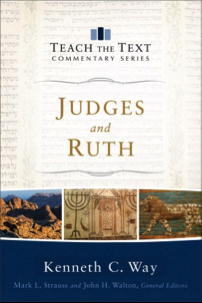The book of Ruth presents the inspiring journey of God’s people from tragedy to triumph. The story is a mirror opposite of Israel’s depressing journey from triumph to tragedy that is presented in the book of Judges. While Judges is about breaking covenant and leaving torah, Ruth is about keeping covenant and living torah. While Judges emphasizes Canaanization[1] and curse, Ruth emphasizes sanctification and blessing. While Judges documents acts of self-interest, Ruth documents acts of self-sacrifice. While Judges finally depicts the lack of kingship, Ruth finally depicts the line of kingship.
Indeed, the story of Ruth teaches powerfully by means of luminous contrasts with the dark period of the judges. This understanding of the book of Ruth may come naturally for Christians, who read Ruth as a sequel to Judges[2], but it is also an emphasis that emerges from the opening chapter of the story itself. The very first verse sets the historical time frame (“In the days when the judges ruled”) and braces the audience for bad news. Famine, flight and a spate of deaths leave Naomi bereft and bitter. But then the light begins to shine brightly as God providentially provides fertility, people show kindness to one another, and God rewards his people with present and future blessings.
It is important and necessary that the book of Ruth offers an exception to the dark picture painted in the book of Judges. Given the general trend of Israel’s faithlessness, one might justifiably wonder how a righteous king like David could emerge. The book of Ruth effectively answers this question by placing a spotlight on a faithful family in Bethlehem of Judah that will turn out to be David’s genealogical and spiritual kin. Ruth’s story confirms that God providentially has preserved faithful families and that David emerges from such righteous stock despite the shadowy conditions of pre-monarchic Israel.

1 See my earlier post on Canaanization (http://www.thegoodbookblog.com/2013/oct/28/canaanization-israels-problem-and-ours/).
2 This is not the only way to read the book of Ruth. It can also be read as a wisdom story (see http://www.thegoodbookblog.com/2015/oct/05/ruth-as-a-wisdom-story/).
 Biola University
Biola University
.jpg)


.jpg)